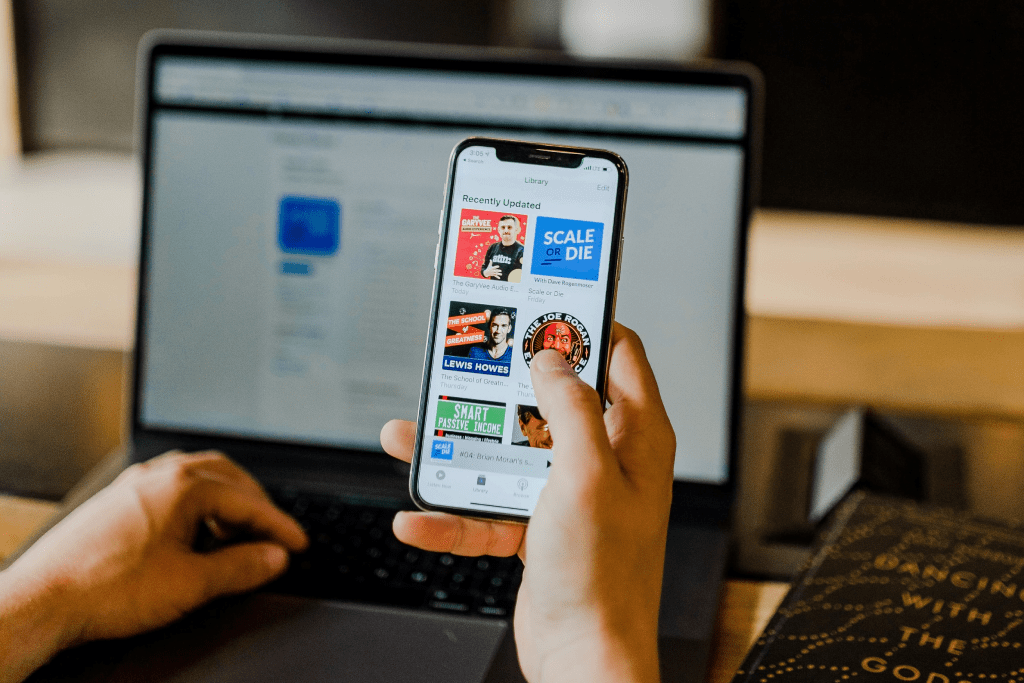We all come from different backgrounds and life experiences. Perhaps you have never had reliable financial education, or maybe you just want to sharpen your financial mind. Wherever you’re coming from, we commend you for taking steps towards increasing your financial literacy. To help you achieve your literacy goals, we have compiled a list of resources, suggestions, and practices to help you improve your financial literacy today.

1. Take a financial literacy test
First thing’s first. Before you take steps to improve your financial literacy, it’s helpful to establish a baseline to know where you need to improve and track your progress.
We recommend Savology’s financial literacy quiz, but you can find an alternative if you prefer. No matter which test you use, they will all help you identify gaps in your financial knowledge, which you can then use to guide your research. Take a financial literacy test often so you can track your progress.
2. Subscribe to financial newsletters
Do you want to learn about personal finance but don’t have a lot of time? Or maybe you have a hard time focusing on long-form financial literature. Who doesn’t? Financial newsletters are an excellent resource for quick, consistent learning. Many financial entities send out a short daily (or weekly) newsletter that helps you learn financial concepts or stay up to date with the latest news in finance.
There are many financial newsletters from many publications across a multitude of topics, but here are a few to get you started:
Your Money
This New York Times newsletter covers retirement, paying for college, credit cards, and investing.
Robinhood Snacks
Robinhood Snacks prides itself on being a 3-minute newsletter for daily financial news. It’s a great option if you want to stay up to date on what’s happening in the financial community.
The Penny Hoarder Daily
This newsletter is just what it sounds like: a daily newsletter covering how to earn and save more money.
I Will Teach You to Be Rich
Are you looking to make some big changes to your income potential? Check out I Will Teach You to Be Rich and get regular tips on how to accumulate wealth.
3. Read personal finance books
If you have enough time to dive deep into personal finance, books are a great option. Because of the longer format, the authors can delve a lot deeper into what they’re writing about, and you can get a more rich understanding as a result.
Here are a few books we like:
Rich Dad Poor Dad by Robert Kiyosaki and Sharon Lechter:
Regarded as the #1 Personal Finance book of all time, this story describes the lessons Kiyosaki learned from his own father and his friend’s father as he grew up.
The Richest Man in Babylon by George Samuel Clason:
In this quick afternoon read, Clason expounds on the prosperous financial practices of the ancient Babylonians and how they can help you become fiscally successful.
The Millionaire Next Door by Thomas J. Stanley
Have you ever wondered how wealthy individuals got where they are today? In his book, Stanley identifies seven traits held in common among all those in the circles of the rich and how you can develop those traits yourself.
The Total Money Makeover by Dave Ramsey:
Written by one of the best financial gurus of the 21st century, this book teaches readers how to create a solid financial foundation that will set them up for future prosperity and economic achievement.
The One Page Financial Plan by Carl Richards:
Though this book is not written entirely on one page, Richards designed it to guide readers through the process of prioritizing their wants and needs so they can create a simple but powerful financial plan that fits on one page.
4. Use financial management tools
Research tells us that without the opportunity to act on what you learn, you have a hard time retaining information, no matter how compelling your learning material is. One of the best ways to act on what you’re learning is to take action! There are so many financial management tools out there that can help you take action.
Here are a few that we recommend:
Budgeting
- YNAB (You Need a Budget) is a personal budgeting platform that helps individuals control their finances, get rid of debt, and increase savings. If you haven’t figured out how to budget effectively, check out YNAB to learn more.
Credit
- Check out Credit Karma to see your credit score and get personalized tips about improving your score.
- Similarly, AnnualCreditReport.com gives all users a free credit report once a year. If you’re not sure what’s on your credit report or what goes into determining your credit score rating, make sure to read through your credit report.
Financial Planning
- Savology helps you create a personalized financial plan in minutes. They take a holistic approach to your finances which is helpful in a world where every publication or book can make it seem like their brand of financial knowledge is the gospel truth.

5. Listen to podcasts about finance and money
Another creative way to increase your financial literacy is to listen to podcasts. Podcasts are a great way to absorb information while completing other mindless, everyday tasks. Whether you’re commuting, cleaning the house, or mowing the lawn, podcasts help you maximize that time. Who knew washing the dishes could be so informative!
Be sure to do your own digging, but we have listed some of our favorite money podcasts here:
WSJ Your Money Briefing
This is a great podcast to listen to for simplifying complicated money questions to help you understand and manage your money.
The Ramsey Show
This podcast by Dave Ramsey is a fantastic resource for those looking to increase their savings, reduce debt, or generally learn more about finances.
Radical Personal Finance
This Joshua Sheats podcast discusses financial freedom and helps you create a comprehensive financial plan.
Planet Money
Produced by NPR, this is a podcast that reviews everything going on in the economy. If you want to stay up to date on the status of the US economy, check out this podcast.
6. Enroll in a financial literacy course
Say you’re looking for a deeper dive into improving your financial literacy, but books seem a little dry. Financial literacy courses can be great because they provide top-notch information, and many times they are interactive. There are a wide variety of courses out there, but here are a few we recommend:
Centsei Financial
Looking for something to work on together with your partner? Centsei Financial is an online course created by couples for couples that covers “the how-to’s of personal finance.”
Financial Peace University
This course from Dave Ramsey is a noteworthy option for those wanting to focus on paying off debt.
Beginner’s Guide to Managing Money
Produced by Udemy, this is a great beginner’s course covering the basics of financial literacy and budgeting. If you’re looking for a simple place to start, this might be the right course for you!
7. Meet with a financial coach
Sometimes it’s hard to know where to start with your finances. Financial coaches help you look at the big picture and then break it down into more manageable chunks. While they can certainly help you identify gaps in your financial knowledge and point you to resources, financial coaches go beyond literacy, guiding you through day-to-day money decisions and helping you set attainable goals.
Financial coaches should not be confused with financial advisors, however. There is some overlap, but financial coaches generally take a holistic approach to your finances, while financial advisors hone in on your net worth and investments and don’t do as much with your financial literacy.
8. Follow financial experts and influencers on social media
Maybe reading a book or taking a financial course just isn’t your jam, and you’re craving something truly bite-sized. Social media has brought together some of the brightest financial minds from all walks of life. There are hundreds of personal finance accounts with various target audiences, ranging from novice to expert. We have listed a few of our favorite accounts below, but we encourage you to explore on your own!
- @herfirst100k – find inspiration and advice for becoming financially literate and independent – especially women.
- @female.in.finance – teaches women about budgeting, debt, and investing
- @mrmoneyjar – managing money and investment
- @clevergirlfinance – spending habit tips, investing
- @moneytothemasses – across the board financial literary + knowledge
- @hipster_finance – Financial advice made hip
- @SavologyApp – financial wellness content for people who may just be getting into personal finance
- @WSJpersfinance – It’s the Wall Street Journal. Ever heard of it?
- @MoneyUnder 30 – As the name suggests, this is a great starting point for anyone wanting to learn more about personal finance.
- @ronlieber – Ron is the Your Money columnist for the New York Times and offers compelling and fresh takes on personal finance.
- @NerdWallet – In the world of personal finance, Nerd Wallet cuts through the noise with valuable insight and journalism that keeps you up to date on the latest happenings in finance.
9. Get an accountability partner
Talking about finances with a trusted friend or significant other is a great way to learn and keep yourself accountable. Talk about the practices that you find helpful and try implementing habits that have benefitted them. With your combined knowledge, you can learn even more as you keep each other accountable and learn from the other’s experience.

To sum up, it doesn’t matter where you begin with these resources. Each of them can help you in different ways. The biggest obstacle to improving your financial literacy is taking that first step. However, as I hope you’ve seen from all the resources we’ve provided, that first step can be as easy as following a new Instagram account or subscribing to a podcast. So what are you waiting for? Set a goal today to improve your financial literacy and make a plan for what you’ll do to reach your goals.







